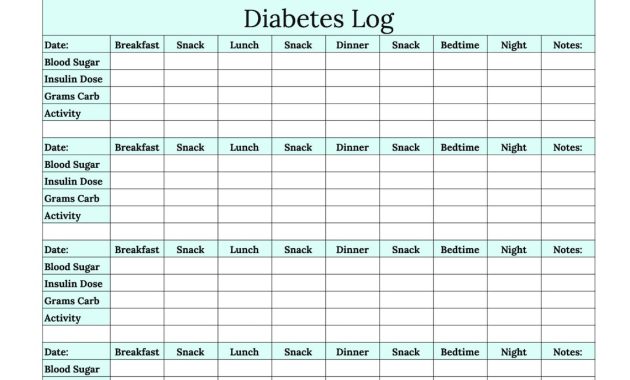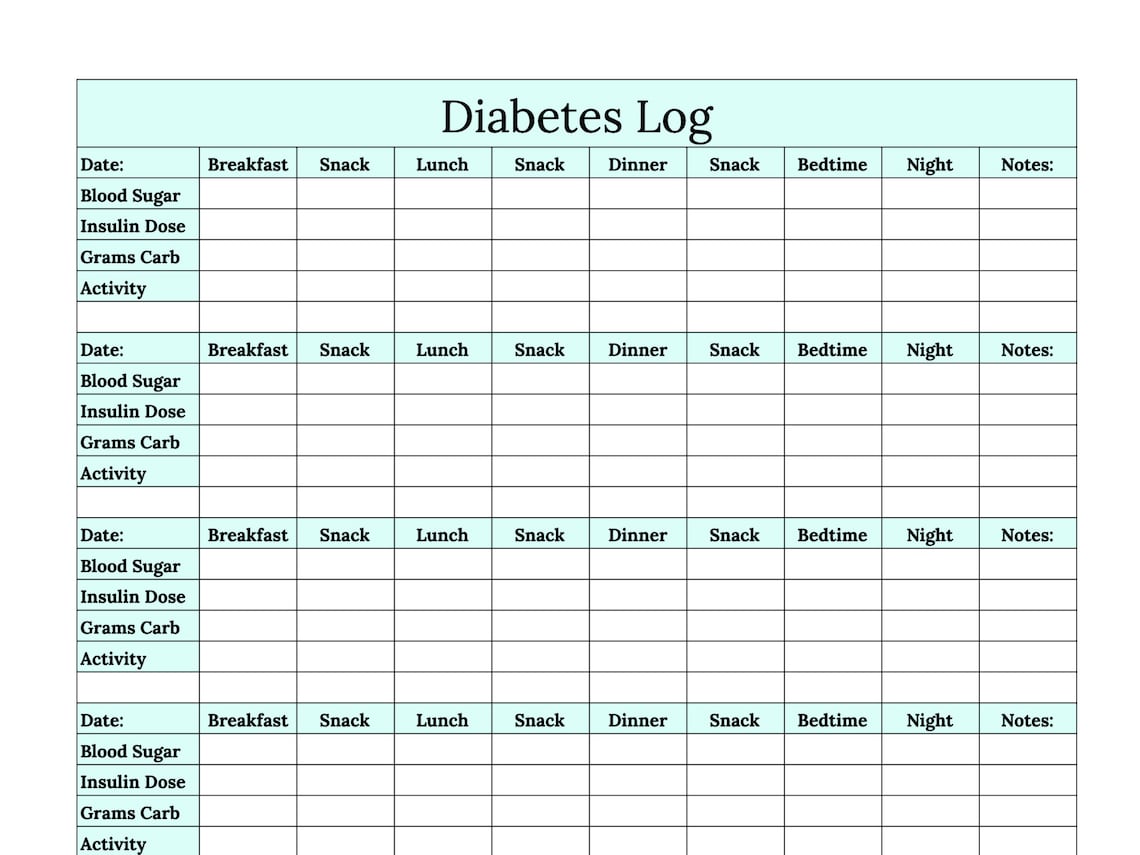
How to Create Weekly Check-Ins for Diabetes Progress: A Comprehensive Guide
Living with diabetes requires diligent self-management. Regular monitoring of blood sugar levels, diet, and exercise are crucial. Creating a system for weekly check-ins is a proactive step. This structured approach helps track progress, identify challenges, and make informed adjustments. This article provides a comprehensive guide on how to create effective weekly check-ins for diabetes progress.
The core idea is simple: regular review. Weekly check-ins provide a consistent snapshot of your diabetes management. This allows for early identification of trends. It helps in preventing potential complications. By following a structured weekly check-in process, individuals can gain better control. They can improve their overall health outcomes.
Why Weekly Check-Ins Are Important
Diabetes is a complex condition. Its management requires constant attention. Weekly check-ins offer several benefits. They are a powerful tool for improved health.
- Tracking Trends: Weekly check-ins help identify patterns. These patterns can be subtle. They may indicate the need for adjustments.
- Early Intervention: Regular reviews allow for early detection of issues. This is important for preventing serious complications.
- Motivation and Accountability: Documenting progress can be motivating. It also fosters accountability. This is essential for long-term success.
- Informed Decision-Making: Data collected during check-ins provides valuable information. This information supports informed decisions about treatment. It also helps with lifestyle changes.
Setting Up Your Weekly Check-In System
Creating a successful weekly check-in system requires planning. This section outlines the key steps.
Choose Your Method
Several methods can be used for weekly check-ins. The best choice depends on personal preferences and resources. Options include:
- Paper-Based Journal: This is a simple method. It involves recording data manually.
- Spreadsheet: Software like Microsoft Excel or Google Sheets. This is excellent for data analysis.
- Mobile Apps: Many apps are designed for diabetes management. They offer tracking and analysis features.
- Online Platforms: Some platforms offer comprehensive diabetes management tools. They often integrate with other devices.
Consider ease of use. Choose a method that you will consistently use. The goal is to create a sustainable system. It must fit your lifestyle.
Gather the Necessary Information
Prepare the data you will need for your weekly check-in. This includes:
- Blood Glucose Readings: Track fasting, pre-meal, and post-meal readings.
- Medication Dosage and Timing: Record the medications taken. Note the time and dosage.
- Food Intake: Log meals and snacks. Note the carbohydrate content.
- Exercise: Record the type, duration, and intensity of exercise.
- Weight: Measure your weight weekly. Do it at the same time and day.
- Symptoms: Note any symptoms. This includes fatigue, thirst, or frequent urination.
Accuracy is essential. Make sure to use reliable measurement tools. These tools can help you manage your diabetes.
Create a Consistent Schedule
Consistency is key. Choose a specific day and time for your weekly check-in. Make it a habit. Treat it as an important appointment. This helps ensure you stay on track. Consider setting a reminder. This will help you stay consistent. It will help you with your diabetes progress.
Conducting Your Weekly Check-In
Follow these steps to conduct an effective weekly check-in.
Review Your Data
Start by reviewing the information you have gathered. Look for trends and patterns. Identify any areas of concern. Note any significant changes in blood sugar levels. Pay attention to any symptoms you have experienced. This will help you with your diabetes progress.
Analyze Your Results
Analyze your data. This helps to understand the impact of your actions. Ask yourself these questions:
- Are my blood sugar levels within the target range?
- Are there any patterns in my readings?
- How did my diet and exercise affect my blood sugar?
- Are my medications working effectively?
Use your answers to guide your next steps. This is important for your diabetes progress.
Make Adjustments
Based on your analysis, make adjustments. This may involve changes to your diet or exercise plan. It could also involve adjusting medication dosages. Consult with your healthcare provider. They can provide guidance and support. They will also help you with your diabetes progress.
Document Your Findings and Actions
Record your findings. Document any actions you take. This documentation is important for future reference. It provides a record of your progress. It also helps you track the effectiveness of your strategies. This will help you with your diabetes progress.
Tips for Success
Here are some tips to help you create effective weekly check-ins.
- Be Consistent: Stick to your schedule. Consistency is key for long-term success.
- Be Accurate: Record your data carefully. This helps make informed decisions.
- Be Honest: Be honest with yourself about your habits. This will help you with your diabetes progress.
- Seek Support: Consult with your healthcare team. They can provide guidance. They can also offer support.
- Celebrate Successes: Acknowledge your achievements. This boosts your motivation. This will help with your diabetes progress.
Integrating Technology for Diabetes Progress
Technology offers many tools to help with diabetes management. These tools can streamline the weekly check-in process.
- Glucose Meters: Many modern glucose meters sync with apps. They automatically record readings.
- Continuous Glucose Monitors (CGMs): CGMs provide real-time blood sugar data. They also offer insights into trends.
- Diabetes Apps: Mobile apps offer tracking. They also provide analysis. They help with medication reminders.
- Wearable Devices: Fitness trackers can monitor activity levels. They also track sleep patterns.
Explore these technologies. They can enhance your weekly check-ins. They can also improve your overall diabetes management. Technology can play a crucial role in your diabetes progress.
Working with Your Healthcare Team
Regular communication with your healthcare team is essential. Share your weekly check-in data. Discuss any challenges or concerns. Your team can provide personalized advice. They can also adjust your treatment plan. They will support your diabetes progress.
- Share Data: Bring your weekly check-in records to your appointments.
- Ask Questions: Discuss any questions or concerns you have.
- Follow Recommendations: Adhere to your healthcare provider’s recommendations.
- Schedule Regular Check-ups: Attend all scheduled appointments. This is vital for effective diabetes management.
Common Challenges and Solutions
Several challenges can arise with weekly check-ins. Here are some solutions.
- Inconsistency: Set reminders. Create a routine. Make it a priority.
- Data Overload: Focus on key metrics. Use a simple tracking method.
- Lack of Motivation: Set achievable goals. Celebrate small wins. Find support.
- Technical Difficulties: Seek help with technology. Use user-friendly tools.
Addressing these challenges will help you stay on track. It will help with your diabetes progress.
Conclusion
Creating weekly check-ins is a powerful strategy for diabetes management. It helps you track progress. It promotes accountability. It empowers you to make informed decisions. By following the steps outlined in this guide, you can create an effective system. This will help you achieve better health outcomes. Remember that consistent effort is key. Regular weekly check-ins are a key element. They will help in your journey towards improved diabetes progress.
[See also: Related Article Titles]

